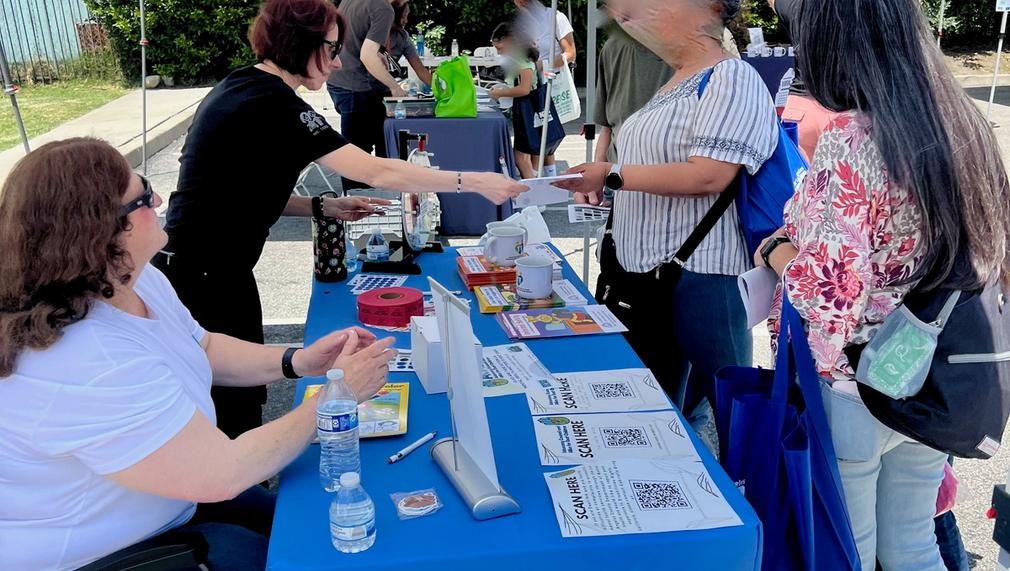Enhancing ASL Interpreter Preparedness for Mass Casualty and Disaster Response
This project seeks funding to develop and implement a specialized training program (emergency protocols, safe response, trauma-informed practices) for American Sign Language (ASL) interpreters to effectively operate in mass casualty and disaster response settings. Across the United States, including the recent fires in Los Angeles in January 2025, the Deaf and hard-of-hearing community has repeatedly suffered from Information Deprivation Trauma—a preventable consequence of inadequate access to timely, life-saving information during emergencies.

What is the primary issue area that your application will impact?
Community safety
In which areas of Los Angeles will you be directly working?
County of Los Angeles (select only if your project has a countywide benefit)
In what stage of innovation is this project, program, or initiative?
Expand existing project, program, or initiative (expanding and continuing ongoing, successful work)
What is your understanding of the issue that you are seeking to address?
This project addresses the critical lack of trained ASL interpreters during mass casualty and disaster events, which has led to widespread Information Deprivation Trauma in the Deaf and hard-of-hearing community. In emergencies, vital information is often not provided in ASL at press briefings, hospitals, or by first responders—especially within the first 24-72 hours, when communication is most crucial. This initiative will create a specialized training program specific to Los Angeles to prepare certified ASL interpreters for high-pressure disaster settings and multi-casualty events, i.e. shootings, bombings, building collapses. Training will include emergency response protocols, trauma-informed practices, and coordination with emergency agencies. By building a regional network of disaster-ready interpreters, the project ensures equitable access to life-saving information and promotes inclusive, effective emergency response systems.
Describe the project, program, or initiative this grant will support to address the issue.
The grant will support the development and implementation of a specialized training program designed to prepare certified American Sign Language (ASL) interpreters to serve effectively in mass casualty and disaster response settings. The program addresses a critical gap in emergency preparedness: the lack of qualified ASL interpreters at key communication points—such as press briefings, hospital triage, and first responder interactions—within 1-2 hours following a crisis. This absence has led to Information Deprivation Trauma in the Deaf and hard-of-hearing community, caused by the inability to access timely, life-saving information during emergencies. A major focus will be on recruiting Certified Deaf Interpreters
The initiative will create/implement a comprehensive curriculum focused on three core areas: understanding emergency response protocols, applying trauma-informed interpreting practices, and effectively coordinating with emergency management agencies. Training will include workshops, simulations, and collaborative exercises to prepare interpreters for the high-pressure nature of disaster response. The project will also establish a local database of trained, disaster-ready ASL interpreters who can be rapidly deployed during emergencies. By ensuring that Deaf individuals receive clear, accurate, and timely information, this program promotes equitable access, reduces trauma, and strengthens inclusive emergency response systems across LA County and Southern California.
Describe how Los Angeles County will be different if your work is successful.
If this project is successful, Los Angeles County will be a national leader in inclusive emergency response. Deaf and hard-of-hearing residents will have timely access to life-saving information during mass casualty and disaster events through trained ASL interpreters at press briefings, hospitals, mental health, and with first responders. Government agencies are already required under various Federal laws to have established protocols to rapidly deploy certified interpreters, reducing delays and confusion. The Deaf community will experience less trauma, greater trust in public systems, and improved safety outcomes. Additionally, trained ASL interpreters will gain vital skills, confidence, and readiness to serve in high-stress, life-saving roles while maintaining their personal safety and mental health. Training will address support and debriefing for interpreters and how to provide recommendations to City or County for their After Action Reports to address gaps in their protocols.
Approximately how many people will be impacted by this project, program, or initiative?
Direct Impact: 80
Indirect Impact: 1,000,000